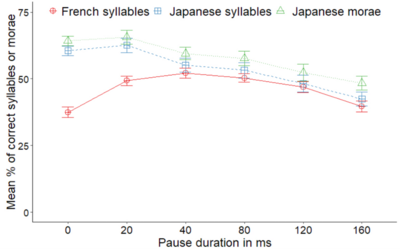The Journal Scientific Reports published an article authored by Irene de la Cruz-Pavía (University of Deusto, Spain), Julián Villegas (University of Aizu), Caroline Nallet (University of Padua, Italy), Kyoji Iwamoto (Waseda Research Institute for Science and Engineering, Japan), Ramón Guevara (University of Padua, Italy), and Judit Gervain (University of Padua, Italy) in Jul. 2025, titled "The Role of Syllabic Rhythm in Speech Perception Across Languages."
Have you ever sped up a recording so much that it became impossible to understand? Scientists found that inserting short silences at regular intervals can help people understand very fast speech, but only if those pauses follow the natural rhythm of spoken language.
This study explored whether this trick works in languages other than English. It turns out that inserting pauses does work in French, but the same pauses did not work in Japanese, which has a faster linguistic rhythm. The findings suggest that our brains rely on the natural timing patterns of our own language to make sense of what we hear, especially when speech is fast or unclear. Understanding how rhythm helps us process speech could improve technologies like automatic translation, speech recognition, and hearing aids. It also shows how deeply connected language is to the natural rhythms our brains expect, and how this rhythms may vary from one language to another.
Details of the paper:
Name of Journal: Scientific Reports
Authors: I. de la Cruz Pavía, J. Villegas, C. Nallet, K. Iwamoto, R. Guevara, and J. Gervain
Title: The Role of Syllabic Rhythm in Speech Perception Across Languages
Date of publication: Jul. 2025
Link to publication: https://www.nature.com/articles/s41598-025-07053-y
About Scientific Repors
Scientific Reports is an open access journal publishing original research from across all areas of the natural sciences, psychology, medicine and engineering. It has a SCImago Journal Rank indicator of 0.874 (2024), and a H-index of 347. Further details of this journal are available https://www.nature.com/srep/about



